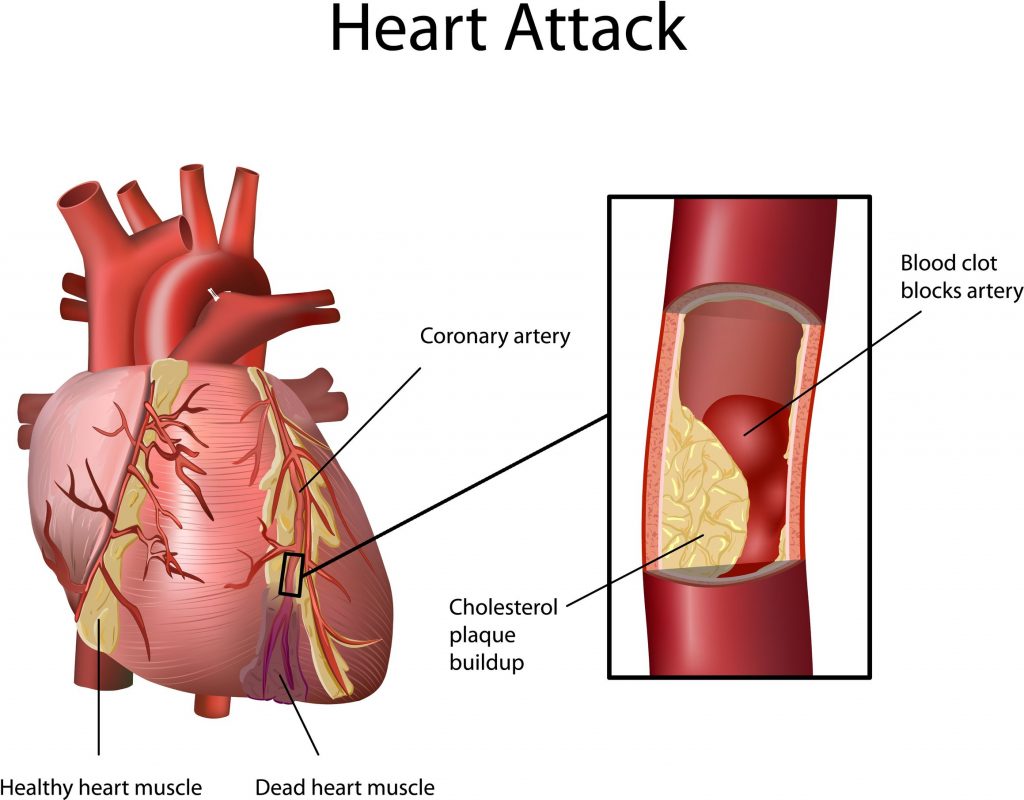
Heart attack, also called myocardial infarction, occurs when blood flow to the heart becomes blocked. The heart cannot get oxygen and part of the heart muscle can be damaged or die. This can lead to heart failure or dangerous heart arrhythmias. A heart attack can kill you, but immediate treatment is often life-saving. Heart attack is a medical emergency and you should seek immediate help if you even suspect that you or someone else is suffering a heart attack.
Heart Attack: Causes
The majority of heart attacks are caused by a blood clot blocking the blood flow in a coronary artery. Most often, this type of heart attack happens in people with atherosclerosis, which is a build-up of plaque in the arteries. However, there are other causes of blood clots that can cause heart attack including:
- Certain types of birth control
- Hormone therapy drugs, for women and men
- Breast cancer medication
- Other medications
- Pregnancy
- Heart arrhythmias – irregular heartbeat
- Heart failure
- Prolonged bedrest
- Prolonged sitting
- Obesity
Blood flow can also be blocked by a spasm of the coronary artery.

Heart Attack: Symptoms
Symptoms of heart attack should always be taken seriously, even in people with no known risk factors. Heart attack is often overlooked in women and young people because they are not considered likely candidates. Symptoms of heart attack include:
- Chest discomfort, including pain, a feeling of squeezing, uncomfortable pressure, or fullness
- Pain or discomfort in the upper body including the back, neck, jaw, or one or both arms
- Stomach pain
- Shortness of breath
- Cold sweat
- Nausea
- Lightheadedness
- Anxiety or a sense of impending doom
- Extreme fatigue, especially in women
